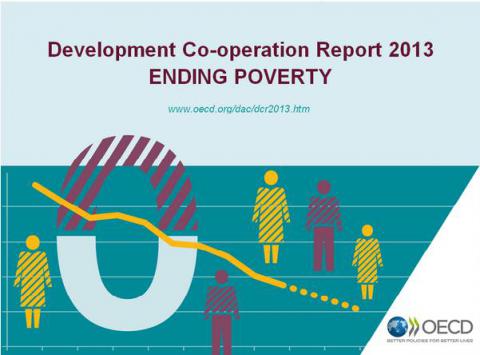
On December 5th, the OECD published its annual report on development cooperation. In this report, the OECD analyses developments in poverty eradication efforts, and provides recommendations for improvement. The OECD views poverty as a very broad concept that includes much more than merely the absence of food or income. Its inclusive approach emphasises therefore the active involvement of all actors, including local governments.
The report focusses on a new, more precise view on poverty. It argues that poverty is a concept that stretches beyond a lack of income to many other deprivations. Therefore, economic growth alone is insufficient. Additionally, the report points out that not all the world's poor live in poor countries. These people are often overlooked and their needs have to be addressed. Furthermore, the OECD pushes for different measurements of poverty, to get a more precise picture of poverty. Finally, the report stresses that it's not only about eradicating poverty, but also about keeping it that way: making poverty eradication sustainable and prevent new forms of impoverishment.
In the view of the OECD, the post-2015 development goals should be a framework for development. Specific goals should be made on the country level, within the objectives of the post-2015 agenda. According to the report, local governments play a crucial role in achieving these national goals.
For the complete report, click here
